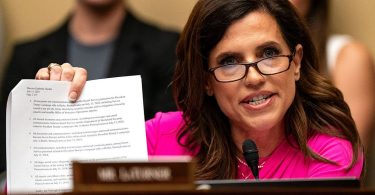- CDC, The Center for Disease Control and Prevention in the United States issued exact guidelines for Americans and an urgent message when to get the third booster shot 3 weeks ago
- It’s important to understand the first and second doses of the COVID-19 vaccine takes precedence over any booster shot
- Today a panel of outside experts on Friday advised the Food and Drug Administration to authorize a booster dose of the Johnson & Johnson coronavirus vaccine for people 18 and older.
Department of Health in the 50 US-States are creating their own version of background information and recommendation, making the entire issue complex and sometimes confusing
The primary, two-shot COVID-19 vaccination of Pfizer and Moderna offers excellent protection against severe symptoms, hospitalizations, and death. The first and second doses of the vaccine should take precedence over any booster doses. The best way to protect families and communities is to ensure that unvaccinated residents complete their primary vaccine series.
A booster shot of Pfizer is now being recommended for specific priority groups to increase their immune response to COVID-19 and to provide protection against the disease, including the Delta variant.
Why should you consider a booster?
COVID-19 vaccinations remain the most effective tool to prevent severe illness, hospitalization, and death, including protection against the widely circulating Delta variant.
However, studies reviewed by the Centers for Disease Control and Prevention (CDC) show that after being fully vaccinated, protection against the virus that causes COVID-19 diminishes over time and provides less protection against the Delta variant.
Who should get a booster shot?
Certain individuals are at increased risk for infection or severe illness from COVID-19 because of their age, underlying medical conditions, or because they live or work in close proximity to others that put them at increased risk for exposure or transmission.
The CDC strongly recommended boosters be given to adults age 65 and older and those age 50 to 64 with underlying medical conditions because waning immunity in these groups puts them at the highest risk for severe illness. Therefore, the Department of Health in many states recommended that healthcare providers give priority to these groups.
As supply for boosters allows, the CDC will make recommendations for additional groups, including adults age 18 to 49 with underlying medical conditions based on the benefits and risks to each individual, and adults age 18 to 64 who are at high risk for occupational or institutional exposure, based on the benefits and risks to each individual.
Just as residents had to patiently wait their turn when the COVID-19 vaccines were first made available we should all demonstrate aloha and make sure the designated priority groups receive their booster first, is part of the instruction given to residents in the State of Hawaii.
The Pfizer booster is only for those who have received the Pfizer vaccine; it is not recommended for those who received the Moderna or Johnson & Johnson vaccine.
The Moderna and Johnson & Johnson vaccines are under review for their own booster doses and those vaccinated with either of these vaccines should wait until both FDA and CDC issue their recommendation. The first stage of this recommendation was already concluded and is awaiting official notices.
When should you get a booster?
The currently recommended timing for a Pfizer booster is six months after you have completed your first two shots. Data from a clinical trial showed that the Pfizer-BioNTech booster shot, which has been approved for use by the Food and Drug Administration, shows there was an increased immune response among the trial participants who had completed their two-shot Pfizer vaccine series six months earlier.
How?
OVID-19 Vaccine booster shots are available for the following Pfizer-BioNTech vaccine recipients who completed their initial series at least 6 months ago and are:






